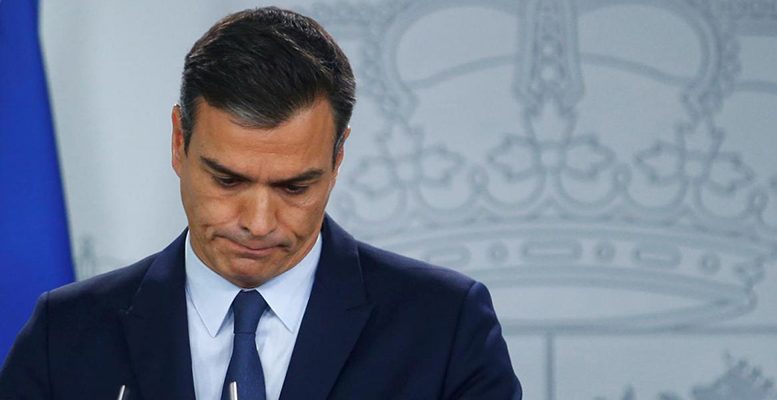Pedro Sánchez is trying to convince Junts to approve the Amnesty Law by undoing the reform of the Criminal Procedure Law that he himself approved in 2020. He intends to limit the investigation time of judges in criminal cases showing he is willing to legislate again at the dictates of the Catalan independentists.
A week after Junts per Catalunya stopped the amnesty law in the Congress of Deputies, returning to the starting point of the Justice Commission the text that included the crimes of terrorism of the ‘procés’ among those eligible for amnesty, this Monday the President of the Government offered Carles Puigdemont’s men a new assignment to save a law without which the viability of his mandate would be in question.
According to the President of the Spanish Government “there is also an element, which we have seen in recent weeks, of instructions that are prolonged and that even the prosecutors themselves have called into question.(…). In short, I believe that there are elements that we can incorporate for improvement and that can correct some of the doubts that these political formations may have.
According to Juan Luis Gómez Colomer, a Professor of Procedural Law, “Setting time limits for the judicial investigation – which is the proposal of the President of the Government – does not mean that the investigation will be dismissed. Limiting the terms of the investigation makes sense when there is a person deprived of liberty, what is known as a case with a prisoner, and this is not the case.”
The return to the previous wording of article 324 of the Criminal Procedure Law – the current one was approved in 2020 at the request of the PSOE itself “to end the impunity of the PP” – would imply that the prosecutors, exclusively, are the ones who request that the judge grant more months to continue with the case, facing the private prosecution.
The modification proposed by Sánchez would mean, therefore, leaving said decision in the hands of the Public Ministry. The lawyer and former prosecutor Juan Antonio Frago explains that the imposition of time limits on investigations implies that, in the event that the deadline has passed and it has not been possible to take a statement from the person under investigation, the case “is over”, a situation in which Puigdemont would find with the Tsunami case, where García-Castellón places him “at the apex of the organization.”





